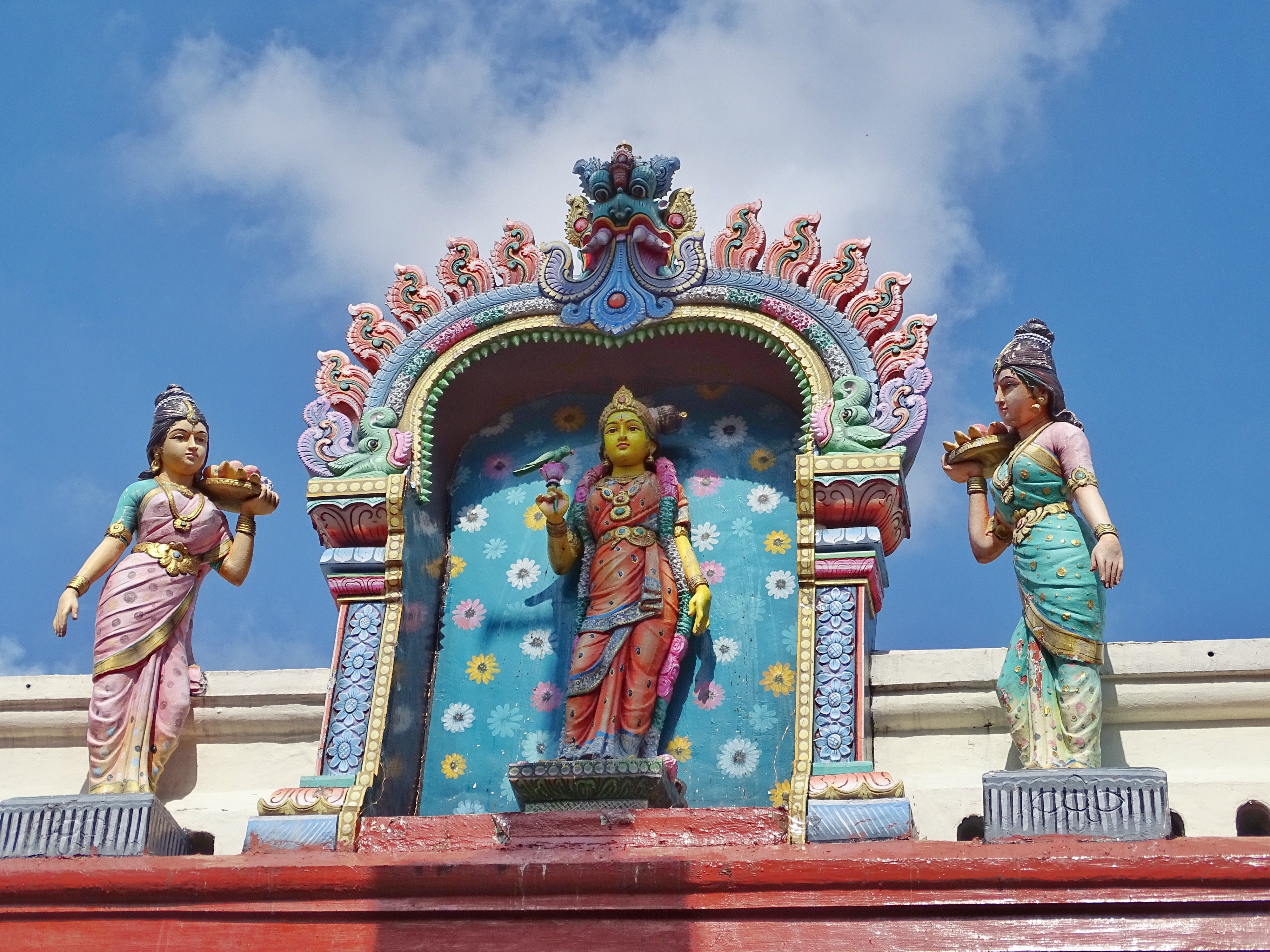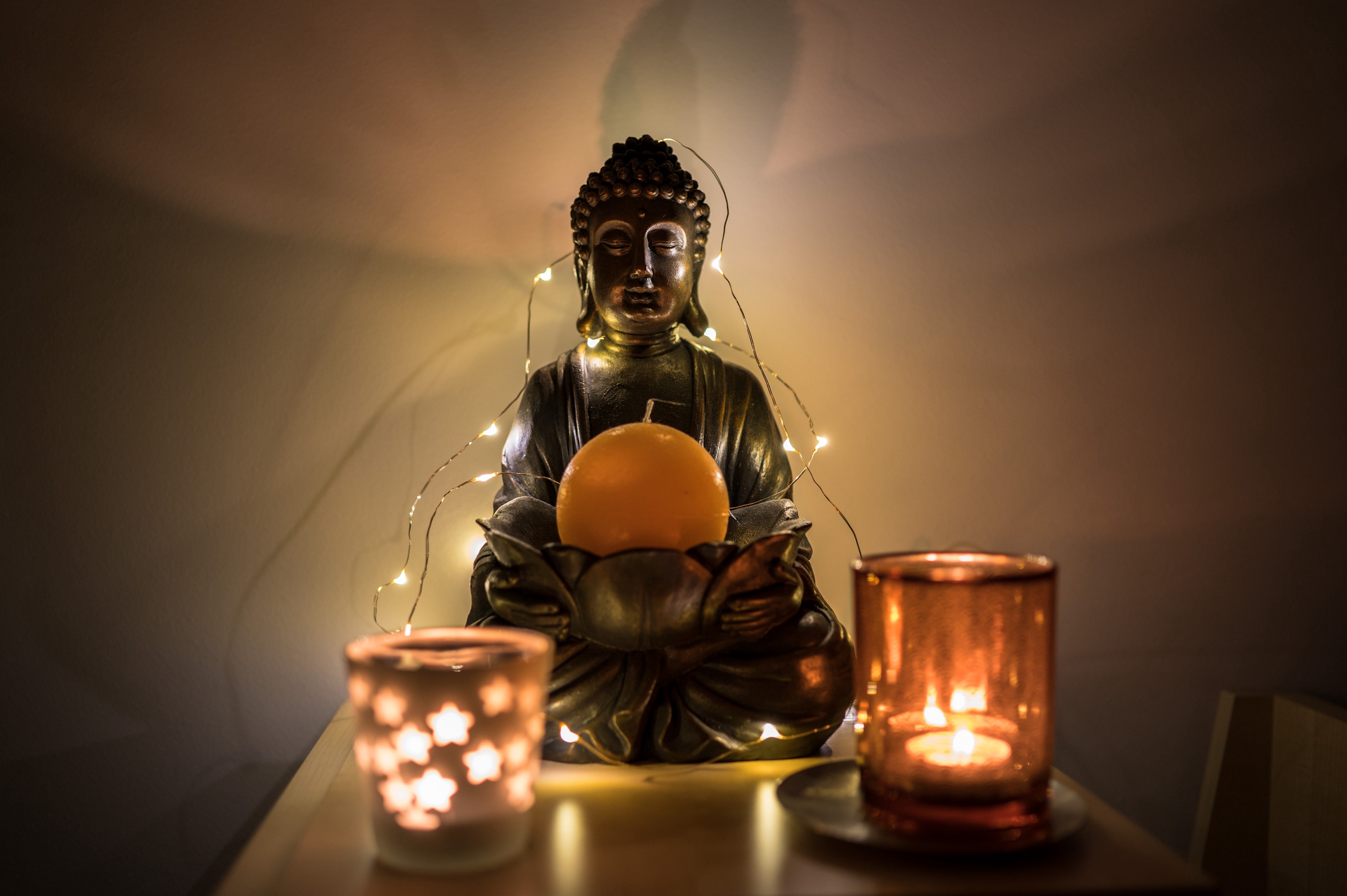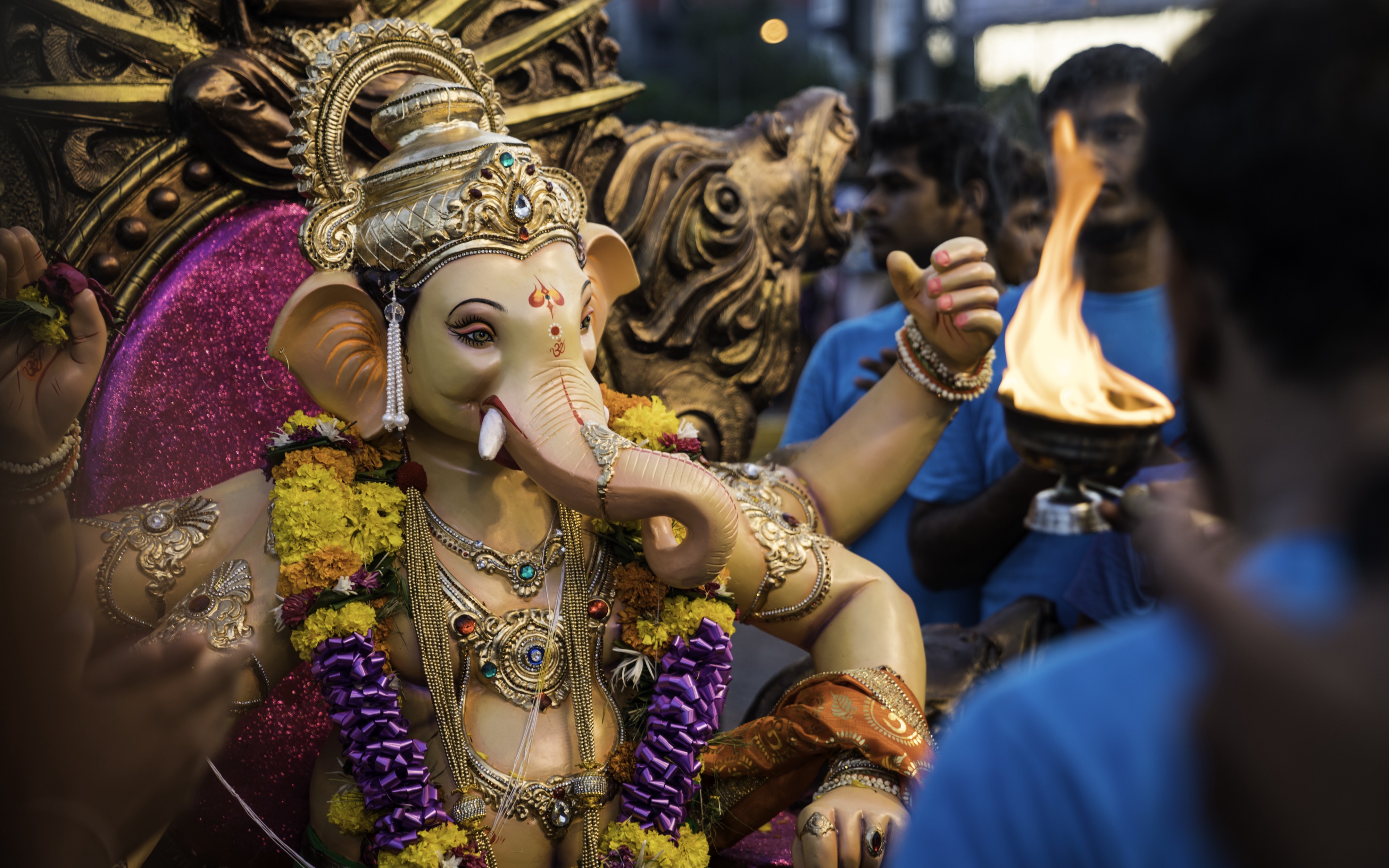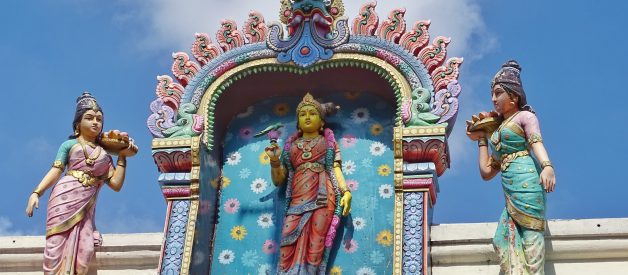A comparison
 Photo by Belinda Fewings on Unsplash
Photo by Belinda Fewings on Unsplash
Hinduism and Buddhism share a lot of the same terminology and concepts but have some rather different interpretations of these shared terms and concepts. The fundamental belief in both Hinduism and Buddhism is that there is a continuing cycle of life, suffering, death and rebirth called samsara, and that this cycle is based on karma, i.e. actions and subsequent reactions. Both Hinduism and Buddhism also share the belief that liberation from samsara can be attained, but both pursue a different path to achieve this. In Hinduism, this liberation from samsara is called moksha, whereas in Buddhism it is known as nirvana.
Dharma
The term dharma is also used and refers to a key concept in both Hinduism and Buddhism but again has a different meaning in both. In Hinduism, dharma refers to a set of norms that regulates people?s behaviour as well as ethics and duties, and prescribes the right way to live. It is major tenet of Hinduism and regarded as the regulatory moral principle of the universe. In Buddhism, on the other hand, the term dharma refers to both the ?natural order or universal law that underpins the operation of the universe in both the physical and moral spheres? and the totality of teachings of the Buddha.
 Photo by Yann Lerjen on Unsplash
Photo by Yann Lerjen on Unsplash
Soul
A major difference between Hinduism and Buddhism is the belief, or lack of belief, in a soul. Hinduism believes in the concept of a soul. Depending on the particular Hindu school investigated, this is either an individual soul or self called atman, or a universal soul or cosmic spirit known as Brahman. In Hinduism, the soul is considered permanent and it is believed that the same soul is reincarnated time and time again, but merely in a different form as a different living being. This cycle is said to continue until through the practice of Hindu yoga, the individual realises that the soul is Brahman. This realisation releases the soul from the cycle of samsara, and moksha is attained.
In Buddhism, on the other hand, there is no belief in the concept of soul. On the contrary, the Buddha rejected the concept of soul or atman. Buddhists believe that there is no self or soul that is reincarnated. Rather, the energy of impermanence and our consciousness is reborn and dies again in the cycle of samsara. In the Buddhist religion, liberation from samsara is attained through acceptance of the Four Noble Truths and by following the Eightfold Path. It is necessary to fully know and see the reality of the human condition and understand that there is no soul in order to overcome the attachment and craving arising from impermanence, and thus reach nirvana and achieve the cessation of suffering. Arising from this different understanding is also a terminological difference in both religions, namely that in Hinduism we speak of ?reincarnation?, whereas in Buddhism we instead refer to ?rebirth?.
Creator
A further difference between Hinduism and Buddhism is the concept of an external creator. The Hindu belief is that deities can take many forms but, as discussed, all form one universal spirit called Brahman. The three most important representations of Brahman in Hinduism are represented in the trinity of deities comprising Brahma, who is considered the creator of the universe, Vishnu, the preserver of the universe, and Shiva, the destroyer of the universe. So in Hinduism there is a clear external creator different from sentient beings. The Buddhist belief, in contrast, requires no external creator, and Buddhism refrains from any metaphysical speculation. It stipulates that the cycle of samsara and karma already has inherent cause and effect, and therefore there is no need to postulate a creator for the world. Hence, no belief in an external power or maker of the world is necessary in Buddhism.
 Photo by Billeasy on Unsplash
Photo by Billeasy on Unsplash
Worship
Another difference between Hinduism and Buddhism is the concept of worshipping deities. Hindus worship deities or devas, and as we have seen either believe in a personal god (Ishvara) or a universal god as a metaphysical entity (Brahman). Hindus engage in daily worship to seek awareness of god (Brahman or Ishvara) and to seek blessings from various devas. It is important to note that despite their individual interpretations of god, no school of Hinduism rejects the idea of Brahman. In Hinduism, several deities are important objects of veneration and even seen as avatars of Brahman. In contrast, Buddhists have no belief in deities to be worshipped. Buddhism does recognise deities (devas) as existing in the Wheel of Life, but worshipping them is not encouraged in order to attain liberation from suffering. In Buddhism these deities are not considered important, and worshipping them would serve no point. They are therefore never considered objects of veneration in Buddhism but merely seen as sentient beings who are also subject to karma and will die and be reborn just like any other living being.
Rituals
Further, daily rituals very important in Hinduism. These include practices such as worshipping deities, chanting mantras, reciting scriptures, singing devotional hymns or paying service to images.
Although some Buddhists also choose to engage in practices like chanting, these are purely expressions of their personal devotion of faith and, unlike in Hinduism, do not serve to seek awareness or blessings from a deity. In Buddhism, rituals are not important in themselves but merely a means to an end, namely to become more mindful and ultimately attain enlightenment.
 Photo by Indian Yogi (Yogi Madhav) on Unsplash
Photo by Indian Yogi (Yogi Madhav) on Unsplash
Yoga
Finally, both Hinduism and Buddhism engage in yoga practice. However, once again both religions interpret the practice differently and pursue different goals with it. Hinduism considers yoga a form of worship with the ultimate goal of uniting their individual self or soul with Brahman, the universal soul. Hindus engaging in yoga often control their breathing by holding their breath for extended periods of time. In Buddhism, on the other hand, breathing is not controlled but remains natural at all times and in- and out-breaths are observed as a means to calm the mind and body and promote concentration. The focus in Buddhism is on mindfulness meditation to obtain wisdom and insight, rather than to engage in the practice as a form of worship.
In conclusion, it is clear that although Buddhism and Hinduism share some of the same concepts, both religions have very different interpretations of them, which manifests itself in very different beliefs and practices.
Sources:Bradley K. Hawkins, Buddhism, 1999Charles S. Prebish and Damien Keown, Introducing Buddhism, 2010Douglas Pratt, ‘Hinduism: Expression Phenomena’ in Religion: A First Encounter, 1993Akira Surakarta, ‘Buddhist Deities’ in Buddhist Cosmology: Philosophy and Origins, 1997


